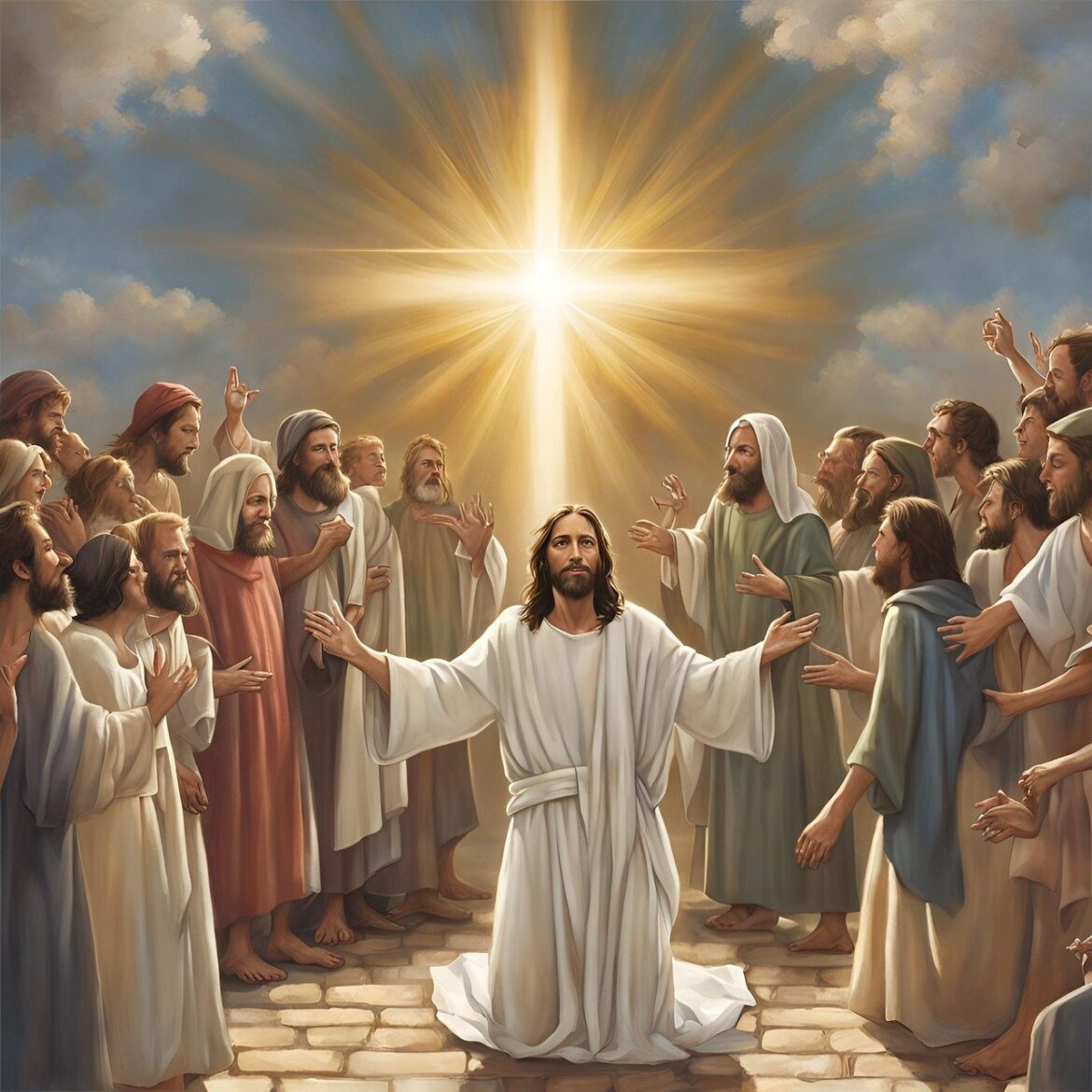Jesus Christ, the central figure of Christianity, captivated his audience through his teachings and miracles, leaving an indelible mark on history. The Bible recounts numerous instances where Jesus spoke with authority, performed miracles, and drew crowds seeking physical healing and spiritual enlightenment. This article explores the scriptural basis for Jesus’ authoritative speech, his miraculous deeds, and the profound impact these had on his followers.
Speaking with Authority
One of the most distinctive features of Jesus’ ministry was the authority with which he spoke. Unlike the scribes and Pharisees of his time, Jesus said things directly and powerfully, which amazed his listeners.
Teaching with Authority
According to the Gospel of Matthew, the crowd was amazed by Jesus’ authoritative teaching style, unlike the scribes (Matthew 7:29). The display of authority took many different forms.
- Authoritative Teachings on the Law: The Sermon on the Mount was where Jesus reinterpreted and fulfilled the Mosaic Law. As an illustration, he stated, “You have heard the ancient commandment, ‘Thou shalt not commit murder.’” Here, Jesus reiterates the commandment and deepens its meaning, showing his authority over the law.
- Parables and Teachings: Jesus often taught in parables, simple yet profound stories that conveyed deep spiritual truths. In Mark 4:1–20, the Parable of the Sower illustrates how different people receive the message of the Kingdom of God. When asked why he used parables, Jesus explained, “To you has been given the secret of the kingdom of God, but for those outside, everything is in parables” (Mark 4:11).
- Declaring Forgiveness of Sins: In an extraordinary display of authority, Jesus forgave sins, something only God could do. When Jesus healed a paralytic, he said, “Take heart, my son; your sins are forgiven” (Matthew 9:2). The scribes considered this blasphemy, but Jesus confirmed his authority by healing the man, proving his divine power (Matthew 9:6-7).
Demonstrating Authority over Nature
Jesus also showed his authority over nature, which left his disciples in awe. One of the most striking examples is when he calmed a storm. The disciples, fearing for their lives, woke Jesus, who was sleeping in the boat. Jesus rebuked the wind and said to the sea, “Peace! Be still!” The wind ceased, and there was a great calm. The disciples, filled with fear and wonder, asked, “Who then is this, that even the wind and the sea obey him?” (Mark 4:39-41).
Performing Miracles
Jesus’ miracles were not only acts of compassion but also powerful demonstrations of his divine authority and identity. These miraculous acts drew large crowds, often more interested in physical healing than spiritual teaching.
Healing the Sick
The Gospels are filled with accounts of Jesus healing the sick, significantly contributing to his popularity.
- Healing the Blind and Lame: In Matthew 15:30–31, it is recorded, “Great crowds came to him, bringing with them the lame, the blind, the crippled, the mute, and many others, and they put them at his feet, and he healed them.” The people’s reaction was astonishment, glorifying the God of Israel.
- Raising the Dead: Jesus’ miracles extended to raising the dead, a supreme demonstration of his power over life and death. When Jesus raised Lazarus from the dead, he declared, “I am the resurrection and the life. Whoever believes in me, though he dies, yet shall he live” (John 11:25). This miracle reinforced his authority and foreshadowed his resurrection.
- Healing a Woman with a Blood Issue: In Mark 5:25–34, a woman suffering from a bleeding disorder for twelve years touched Jesus’ garment in faith and was instantly healed. Jesus, aware of what had happened, said to her, “Daughter, your faith has made you well; go in peace and be healed of your disease.”
Feeding the Multitudes
Jesus’ miracles were also practical, meeting the people’s immediate needs. The feeding of the 5,000 is one miracle recorded in all four Gospels. With five loaves and two fish, Jesus fed a multitude, demonstrating his provision and care (Matthew 14:13–21).
Casting Out Demons
Jesus’s authority extended over the spiritual realm, frequently casting out demons. In Mark 1:23-27, Jesus encountered a man with an unclean spirit in the synagogue. The demon recognized Jesus, calling him “the Holy One of God.” Jesus rebuked the spirit, which obeyed, leading the people to exclaim, “What is this? A new teaching with authority! He commands even the unclean spirits, and they obey him.”
Crowds Following Jesus
The miracles of Jesus drew immense crowds, often seeking physical healing more than spiritual teaching. This dynamic is evident in several passages:
- The Crowds at Capernaum: In Mark 1:32–34, after Jesus healed Peter’s mother-in-law, “the whole city was gathered together at the door.” Jesus healed many sick people and cast out many demons, illustrating the widespread impact of his miracles.
- Seeking Signs: Despite the miracles, some sought signs to prove his authority. In John 6:26, after feeding the 5,000, Jesus addressed the crowd’s motivations: “Truly, truly, I say to you, you are seeking me, not because you saw signs, but because you ate your fill of the loaves.”
- Persistent Crowds: Even when Jesus sought solitude, the crowds followed. In Mark 6:30–34, Jesus and his disciples went to a desolate place by boat, but the people “ran there on foot from all the towns and got there ahead of them.” Jesus taught them a lot as a result of his compassion.
Conclusion
Jesus Christ captivated his audience through his authoritative teaching and miraculous deeds, fulfilling prophecies and demonstrating his divine nature. Crowds were attracted to him for his physical healing abilities and the profound spiritual truths he shared. Scriptures such as Matthew 7:29, Mark 4:39–41, and John 11:25 highlight Jesus’ unique authority and ability to perform miracles that affirm his message.
Jesus’ ministry left an indelible impact on those who witnessed it, and his teachings and miracles resonate with believers today.
In his Gospel, John concluded, “Now there are also many other things that Jesus did. Were every one of them to be written, I suppose that the world itself could not contain the books that would be written” (John 21:25). This statement emphasizes the extensive impact of Jesus’ life and ministry.




